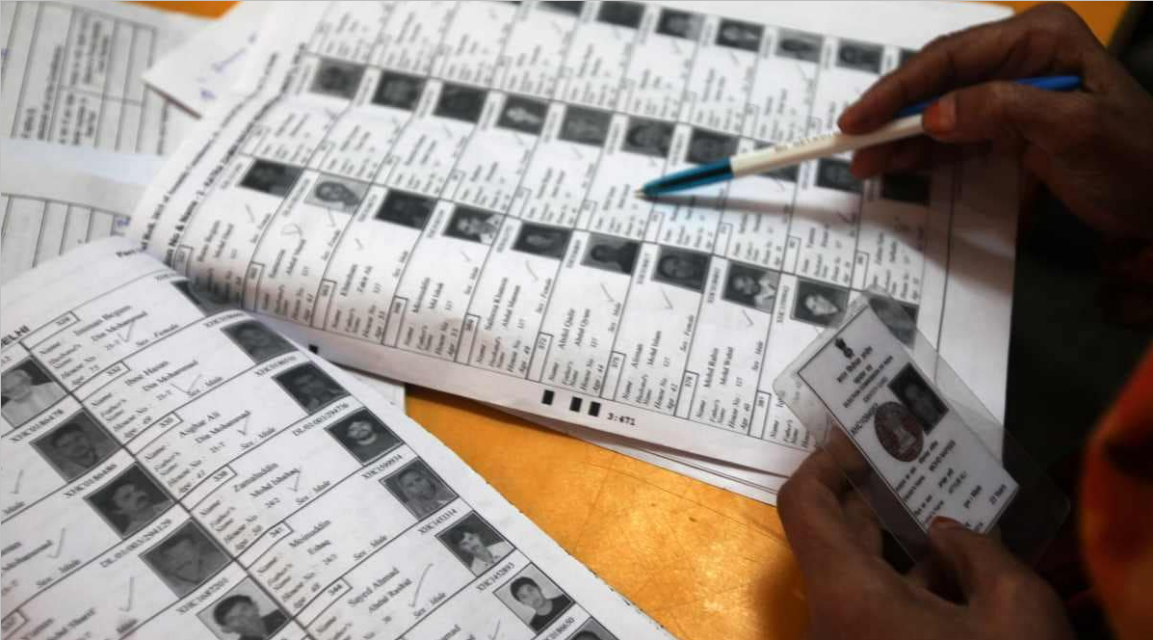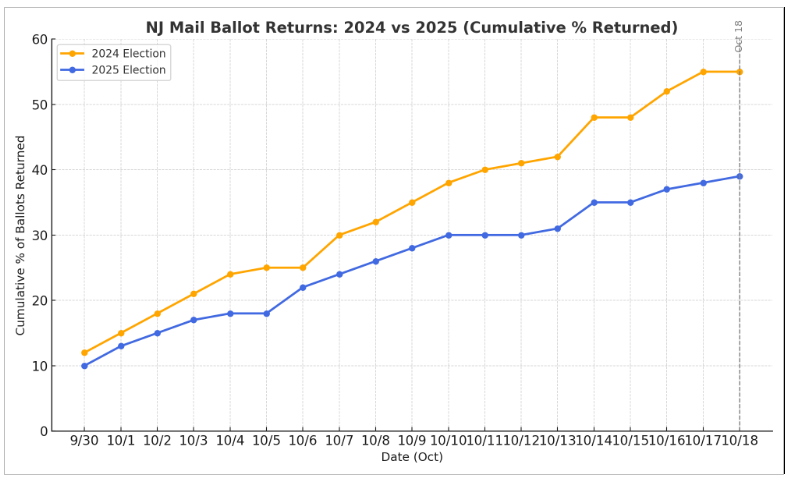The recent executive order (EO) introduces several federal mandates aimed at standardizing and securing election processes across the United States. A comparison with New Jersey's Title 19 election regulations reveals specific areas where state practices may not align with the new federal directives.
- Voter Registration and Proof of Citizenship
- Executive Order: Mandates that all voter registration forms require documentary proof of U.S. citizenship
- New Jersey Title 19: Currently, New Jersey does not require documentary proof of citizenship for voter registration. Applicants affirm their eligibility under penalty of perjury but are not mandated to provide citizenship documents.
- Mail-In Ballots (Vote-by-Mail)
- Executive Order: Requires that all mail-in ballots bereceived by election officials no later than Election Day tobe counted.
- New Jersey Title 19: Allows mail-in ballots to be counted ifthey are postmarked by Election Day and received within sixdays after the election. New Jersey State Website
- Voting Systems and Paper Records
- Executive Order: Stipulates that voting systems must produce voter-verifiable paper records and prohibits the use of barcodes or QR codes in vote recording, except as necessary to accommodate individuals with disabilities.
- New Jersey Title 19: While New Jersey has implemented voter-verifiable paper records, some counties may still use voting systems that incorporate barcodes or QR codes, which could conflict with the new federal standards.
- 14 counties in NJ use ES&S. Every ES&S XL voting machine uses bar codes to tally votes
- NJ self-certified their voting machines via the NJ Gaming Commission. The current federal voting machine standards are voluntary.
- Maintenance of Voter Rolls
- Executive Order: Directs states to regularly update and verify voter registration lists using federal databases, including those from the Department of Homeland Security and the Social Security Administration.
- New Jersey Title 19: Requires counties to maintain and update voter rolls but does not explicitly mandate cross-referencing with federal databases as specified in the EO.
- Enforcement and Compliance
- Executive Order: Empowers federal agencies to withhold funding from states that do not comply with the outlined election integrity measures.
- New Jersey Title 19: Does not address the potential withholding of federal funds based on compliance with federal election mandates.
Implications for New Jersey
To align with the executive order, New Jersey would need to amend its election laws to:
- Implement Citizenship Verification: Require documentary proof of citizenship during voter registration.
- Adjust Mail-In Ballot Deadlines: Ensure all mail-in ballots are received by Election Day to be counted.
- Update Voting Systems: Eliminate the use of barcodes or QR codes invote recording and ensure all systems produce voter-verifiablepaper records.
- Enhance Voter Roll Maintenance: Establish protocols for regularcross-referencing of voter registration data with federaldatabases.
Failure to implement these changes could result in the loss of federal election funding and potential legal challenges.
Legal Considerations
It's important to note that election administration has traditionally been under state jurisdiction. The executive order's mandates may face legal challenges on grounds of federal overreach, and the balance of power between state and federal authorities in election administration could be a point of contention.
Conclusion
New Jersey's current election laws under Title 19 differ in several respects from the provisions of the recent executive order. To ensure compliance and avoid potential penalties, the state may need to undertake significant legislative and procedural changes to its election processes.





